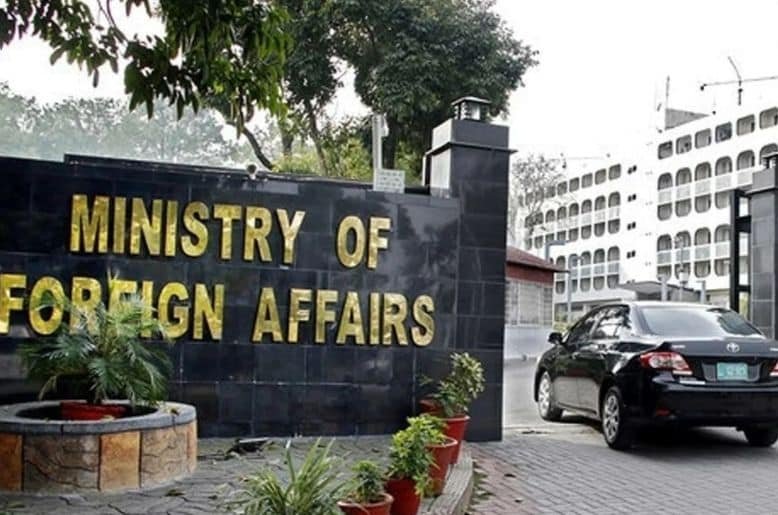Web desk: Pakistan has raised strong objections to certain elements of the India-Afghanistan Joint Statement issued in New Delhi on October 10, as well as to recent remarks made by Afghanistan’s Acting Foreign Minister during his visit to India.
According to a statement issued by the Ministry of Foreign Affairs (FO), Pakistan’s concerns were formally conveyed to Afghanistan’s Ambassador in Islamabad by the Additional Foreign Secretary for West Asia and Afghanistan.
The Foreign Office said that Pakistan rejected the reference to Jammu and Kashmir as part of India, terming it a “clear violation” of United Nations Security Council (UNSC) resolutions and the internationally recognised legal status of Jammu and Kashmir.
“The Joint Statement is highly insensitive to the sacrifices and sentiments of the people of Indian Illegally Occupied Jammu and Kashmir in their just struggle for the right to self-determination,” the statement said.
Pakistan also strongly dismissed the Afghan Acting Foreign Minister’s comments that terrorism was an internal problem of Pakistan.
The Foreign Office stated that Islamabad had repeatedly shared evidence with Kabul regarding the presence of “Fitna-e-Khawarij and Fitna-e-Hindustan” terrorist groups operating from Afghan soil with support from elements inside Afghanistan.
“Deflecting responsibility towards Pakistan cannot absolve the Interim Afghan Government of its obligations to ensure peace and stability in the region,” the statement noted.
Highlighting Pakistan’s long-standing hospitality, the Foreign Office said the country had hosted nearly four million Afghans for more than four decades.
It reiterated that, with peace gradually returning to Afghanistan, it was time for unauthorised Afghan nationals to return home.
The statement stressed that Pakistan, in line with international norms, had the right to regulate the stay of foreign nationals within its borders.
It added that Pakistan continues to issue medical and study visas to Afghans and remains committed to providing humanitarian support “in the spirit of Islamic brotherhood and good neighbourly relations.”
Pakistan reaffirmed its desire for a “peaceful, stable, regionally connected and prosperous Afghanistan” and said it had extended trade, economic and connectivity facilitation to promote bilateral cooperation and socio-economic growth.
The statement concluded that Pakistan would continue to take all necessary steps to protect its citizens and expected the Interim Afghan Government to “play its due role” by preventing Afghan soil from being used by terrorist groups against Pakistan.




